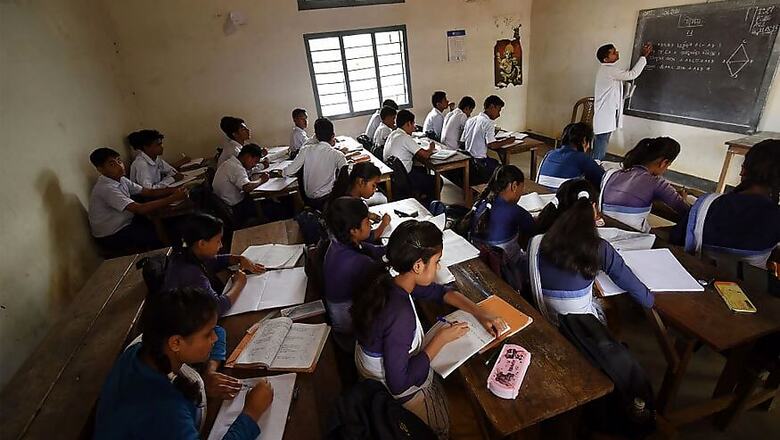
views
New Delhi: India is considered a unique country when it comes to its linguistic diversity. While the languages showcase nation's strength in multiplicity, residents of one state often find it difficult to converse with a local of a different region. Though English and Hindi come handy in such cases, sometimes lack of fluency in the languages may pose a hurdle. To resolve this barrier, a group of researchers are looking into the possibility of a translanguage.
The National Council of Educational Research and Training hosted academics for a closed-door ‘national conference and workshop’ deliberating upon the “artificially created social boundaries and hierarchies among Indian languages, when there exists none on the ground, and flourish in similarities.”
The interaction focused on Indian concept of languages, which upholds that languages are inter-related and integrated. The objective of this gathering between February and March 2019 is to develop a compendium and provide inputs for multi lingual pedagogy, understand and promote linguistic heritage among other objectives.
Under the guardianship of Associate Professor Pramod Kumar Dubey, the Department of Education in Languages organized the conference and workshop titled as, “Development of Compendium of Multi Lingual Pedagogy with Reference to National Conference on Integration among Indian Languages”.
The new proposal was made by an individual academic, Dubey and presented for the Program Advisory Committee in 2017-2018. The workshop took place in NCERT campus.
Keeping the linguistic heritage in view, a three day National Conference was proposed to deliberate on various aspects and issues and themes related inter-relation of languages, trans-lingual pedagogic language and inter textuality and the Indian Concept of Language.
The selected papers of the conference proceedings will further be published as a book and thereafter a compendium (compilation) will be developed. The compendium will focus on the grammatical structure, pronunciation and derivation/etymology literary interpretation of the words selected.
The justification for the proposal submitted in the official proforma for administrative cum financial sanction read: “As per the Indian Knowledge Tradition, Indian concept of Language upholds that languages are inter-related and integrated. Therefore our cultures also have reflection of each other. We have numerous examples of languages and cultural co-relation from the medieval period and the Bhakti Sahitya Era. This movement and continuum can be seen even today in contemporary times.”
The academics present at the workshop said that at the global level also studies are being conducted about the correlation of languages and this gives impetus to the idea that “our languages are interrelated and supplement each other.” This even takes into account inclusive practices such as body language, facial expressions.
“Issues related to language and power, language and identity, local indigenous languages etc. are addressed automatically when languages supplement each other. Languages do not die if they communicate with each other and create space for rejuvenation. Different varieties of languages have unifying factors,” read the document proforma.
It further added: “There are many similarities among Indian languages at the level of the area, provinces they belong to. It is felt social boundaries and hierarchies have been created among languages artificially whereas practically these boundaries do not exist due to linguistic/literary similarities. Earlier all communities were able to communicate with each other and language was never a barrier.”
For developing the multi lingual pedagogy the document said, “Multi lingual pedagogy not only helps in learning process but also opens up the boundaries of communication and relieves stress in the teaching learning process and develops life skills and social personal qualities.”
News18.com contacted Dubey, who made the proposal on the Compendium and the national conference, he said, “Today when we are talking about multi linguality of our country we need to understand and establish that languages are fluid and flow into each other. They flourish in each other’s company – borrowing and lending words and meanings. The languages may seem different but they have the same roots. It will certainly be useful to create meta-linguistic awareness among teachers’ educators, teachers and students.”
Critical of the work on linguist George Grierson – who was appointed superintendent of the newly created Linguistic Survey of India in 1898 - Dubey said, “The colonial legacy in Indian languages is that we associate them with different sections of the society. Grierson had said that Pali is the language of Buddhists and Sanskrit of Brahmans, this was the way to divide the people on the lines of language. The colony is gone and globalization has set in – we have to academically pursue this subject of artificially created boundaries. Our discussions in the conference threw light on the similarities between the languages.”
The effort, he said, will be made on “translanguaging, translingual processes and learning across languages may prove to be a powerful learning tool in this context”.


















Comments
0 comment